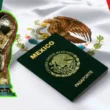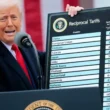In a major policy shift, the federal cabinet has approved Pakistan’s first law aimed at enforcing minimum safety standards for locally assembled and imported vehicles.
The Motor Vehicles Industry Development Act proposes strict penalties, including up to three years’ imprisonment and fines of up to Rs10 million for violators.
Initially cleared by the Cabinet Committee on Legislative Cases (CCLC), the draft law received full cabinet approval on Wednesday.
A senior cabinet member stated that the law is designed to ensure minimum safety, quality, performance, and environmental standards for all vehicles manufactured or imported into Pakistan except those made or adapted for use by the armed forces.
So far, Pakistan has only enforced 17 of the 163 United Nations Economic Commission for Europe (UNECE) vehicle safety standards adopted since 1958.
Despite repeated concerns from consumers and parliamentarians about the poor quality of locally assembled cars, this is the first time legally binding standards have been proposed.
Read More: Govt to establish 100 EV Charging Stations in Karachi
Under the proposed law, manufacturers, assemblers, and importers will be required to register and comply with new safety protocols. Violators could face 6 months to 3 years in jail, with fines ranging from Rs500,000 to Rs10 million, the draft bill states.
Specific penalties include:
- Selling unregistered vehicles: up to 1 year in jail or Rs500,000 fine
- Failing to issue a conformity certificate: up to 6 months in jail or Rs500,000 fine
- Not recalling defective vehicles or parts: up to 2 years in jail or Rs5 million fine
- Ignoring corrective orders from the Engineering Development Board (EDB): minimum 3 years in jail or Rs10 million fine
Despite some CCLC members objecting to the jail terms, the Ministry of Industries defended the strict clauses to protect consumer safety, according to the report published by media.
The legislation includes a one-year grace period for manufacturers and importers to meet the new safety requirements once the law is enacted. Vehicles cannot be sold without a Certificate of Conformity and must display key technical details like dimensions, capacity, and usage type.
Electric vehicles must also list battery type, performance, recycling guidelines, and charging standards.
Importers must be registered companies, have vehicle import as a core business, meet paid-up capital thresholds, and hold a license from the EDB. However, vehicles brought in under the baggage and gift schemes will be exempt.
The bill further mandates mandatory recalls for any component or vehicle found to pose a safety risk. If a manufacturer fails to act, the EDB can step in and carry out the recall independently.
This legislation also aligns with an International Monetary Fund (IMF) condition requiring all legal steps to lift restrictions on used vehicle imports.
Starting September 2025, vehicles under five years old meeting safety and environmental standards will be allowed, with full liberalization planned next year.











